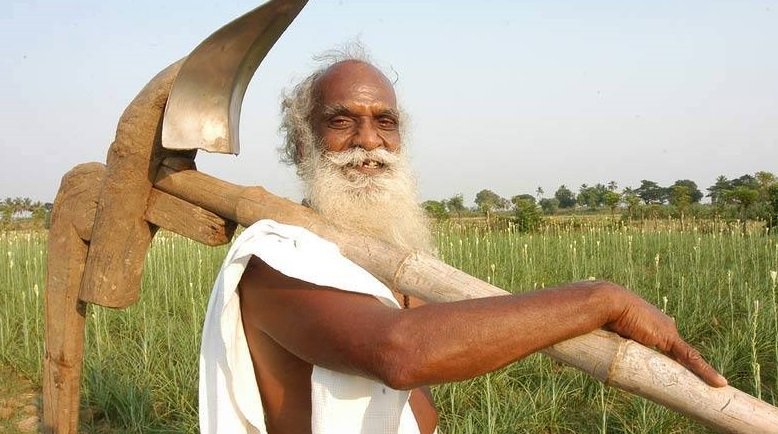Read in : தமிழ்
My dear farming friends, following my last week interaction on organic farming and my request for suggestions, I have received several mails and WhatsApp messages. What was heartening about the mails and the messages was that they were sent by educated, city-bred, highly qualified folks who have spent time abroad. Many of them have taken land for lease and are trying their hand in farming.
I am glad that they have done their homework well and know the ground realities of agriculture.
Friends, we all know that the agricultural scenario today is not healthy and shows a depressing downward trend. We can see that cultivable areas are turning into residential plots. Why is this happening in a country with more than 2,000 years of agricultural heritage? Have you ever thought about it?
It’s simple. The Green Revolution focussed more on increasing yield thereby increasing inputs and totally ignored the local and traditional knowledge systems.
It is true that farming cannot be lucrative as long as we use external inputs.
As a result we lost our native seed varieties, our lands became barren, native birds and insects vanished, water tables started depleting, cross breeding of hybrid cows made several native breeds extinct and rural folk started migrating toward cities.
It is true that farming cannot be lucrative as long as we use external inputs. On the other hand, if we switch to sustainable agriculture, as was done by our forefathers, then we can definitely cut down on a major expense.
Thousands of farmers have realised this fact and have switched over to or are switching over to more environmental friendly farming systems and are reaping good results.
Farmers just need to look around their own fields or village for making bio-inputs. All the necessary inputs required for their farm are there and there is no need for them to go to towns for purchasing them.
But how far are these local systems beneficial in the long run? This is a sure question that highly qualified agricultural scientists ask.
To them I will quote late G Nammalvar, organic scientist, whose role in reviving these traditional methods is exemplary. If not for Nammalvar, organic farming in the state would have been lost and forgotten.
“These traditional systems have existed for hundreds of years and disappeared only over the last four-five decades. Today our farmers have realised the importance of going back to these systems as they are pocket-friendly and effective. Though we have policies which speak out in support of the farmer, sadly they are only on paper and not put into action. A farmer should realize that he alone is responsible for his yield. These systems may look innocuous but their results are proven and have been found effective by many,” he emphasised.
So friends, the decision is in your hands, whether you want to get out of debt or want to wallow in it is entirely your choice. Remember one thing, no one is going to come and save us. We have to save ourselves and others who share our occupation.
Till we meet next week, let us keep contemplating the above and keep moving forward.
Read in : தமிழ்











